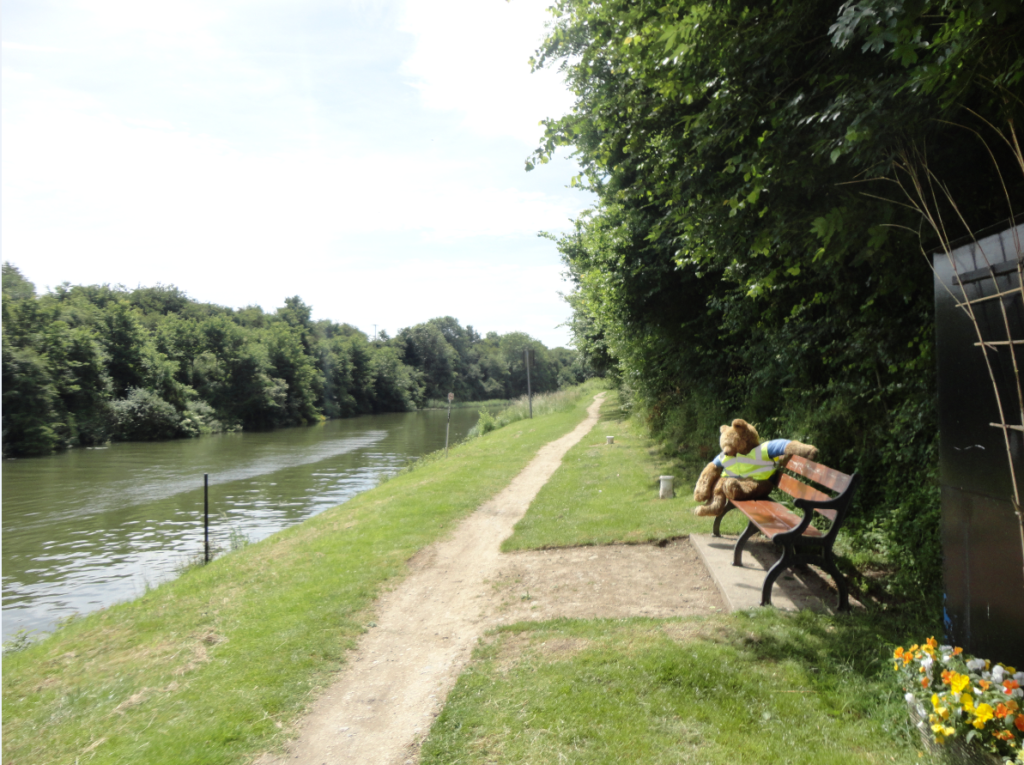Water Pollution

Cristina Ortega is a Groundsure environmental consultant.
In this post she discusses water pollution and the impact this can have on the environment and property transactions.
If you have any questions or comments about this article you can contact Cristina via email at cristina.ortega@groundsure.com.
Water pollution
Did you know that the annual average amount of water use for a single occupancy household per year is 50 cubic metres, which is equivalent to 11,000 gallons or 88,000 pints? (1)
Water is in the list of basic human needs to survive. Water for human consumption comes from surface waters (coastal bays, lakes, rivers and streams) and groundwater. Based on data collected in 2016 countries such as United Kingdom, Sweden, France, and Germany had the highest amount of freshwater resources, with long-term annual averages ranging between 172.9 and 188 billion m³. (2) However, often in some areas the quality of water does not meet basic biological and chemical standards. We assume that the water we consume is always suitable for human health, farming, food and healthy wildlife, but can we be 100% sure that the water is suitable for purpose?

Environmental education is the key. Picture taken by Cristina Ortega
The reality is that the pressure on the planet’s water resources is being increased by human activity and water pollution threatens human health and life on the planet. Water pollution can come from a number of different sources. Activities related to urban and rural population, industrial emissions and farming are the most significant. For example the sewage industry accounted for almost a quarter of the serious water incidents in England and Wales in 2006 (3) and 9% of rivers in England and Wales, and 2% in Scotland, are at risk of failing to meet their targets of good chemical and ecological status because of abandoned mines (4)
Efforts to improve the quality of water in the UK have been in progress for a number of years. In 2000, the United Kingdom agreed to work towards new standards for water and ecological quality in all water bodies (including rivers, canals, lakes and coastal waters), as set out in the European Water Framework Directive (WFD). (5)
The Department for Environment, Food and Rural Affairs (Defra) has been taking a number of actions to manage and improve water quality, such as: reducing and controlling agricultural and urban pollutants, and monitoring and reducing chemical pollutants or managing waste-water, sludge and septic tanks. (6)
The problem is that controlling pollution is not as easy as it seems. Pollution derives from two sources: point source pollution, which comes from a single noticeable source (factory or sewage treatment works) and diffuse pollution, which comes from multiple dispersed sources, such as agricultural land. The identification of diffuse pollution, which has the highest impact on water quality, can be difficult due to the variety of sources and the amount of time taken before improvements are visible. In 2008-09 the Environment Agency spent over £140m on its water quality work in England, including an estimated £8m directly on diffuse pollution. (5)
It has been estimated that the cost of water pollution in England and Wales is up to £1.3 billion per annum. (5) For that reason, and despite the efforts made, in 2012 the stats showed that overall in only 36% of UK water bodies (including rivers, streams, lakes, estuaries, coastal waters and groundwater) were classified as ‘good’ or ‘better’ as per the standard set out in the WFD.
The original deadline for getting all water bodies to ‘good’ ecological and chemical status was 2015; due to the lack of funding the Environment Agency has declared that they aspire to achieve a good status in at least 60% of waters by 2021 and in as many waters as possible by 2027. (6)
Urban and rural areas should be aware of the problem and take responsibility for their own impact on the local management of water. I truly believe that if we educate people to change their behaviour towards the management of environmental areas, we could improve the situation. More projects like Catchment Sensitive Farming (CSF) should be put in place. CSF is a programme run by Natural England in partnership with the Environment Agency and the Defra. The project raises concerns about water pollution from the agricultural sector, as it considers this sector to be the major contributor to diffuse pollution, giving training and advice on solutions to improve water quality through workshops, talks and demonstrations. (7)
From my point of view, environmental education projects are the key. Even though they will not fix the problem their own, they could help establish better practices for working with the local environment.
Water pollution is something that you must consider when you are buying a residential or commercial property. Before making a big investment, it is important to collect as much information as you can regarding the environmental aspects of your property. Environmental data within Groundsure reports provide information regarding pollution incidents (including land, air and water) recorded by the Environment Agency (EA) which can give you an indication of as whether there is something to consider as part of your property transaction. More information about which data is covered within our reports can be found via the following link: https://groundsurepdev.wpengine.com/search-reports/.
References
- South West Water website. What is the average use per household on a meter? http://southwestwater.custhelp.com/app/answers/detail/a_id/208/~/what-is-the-average-use-per-household-on-a-meter%3F
- Water statistics. Eurostat statistic. http://ec.europa.eu/eurostat/statistics-explained/index.php/Water_statistics
- Water Pollution. Sources of Water Pollution. http://www.environmentlaw.org.uk/rte.asp?id=90
- Abandoned mines and the water environment. Environment Agency (2008) https://www.gov.uk/government/uploads/system/uploads/attachment_data/file/291482/LIT_8879_df7d5c.pdf
- Tackling diffuse water pollution in England. (2010) https://www.nao.org.uk/wp-content/uploads/2010/07/1011188.pdf
- Water Framework Directive: achieving good status of water bodies. (2015) http://www.legco.gov.hk/general/english/library/stay_informed_overseas_policy_updates/water_framework.pdf
- Catchment Sensitive Farming: reduce agricultural water pollution. https://www.gov.uk/guidance/catchment-sensitive-farming-reduce-agricultural-water-pollution
Date:
Jul 6, 2017
Author:
Cristina Ortega

